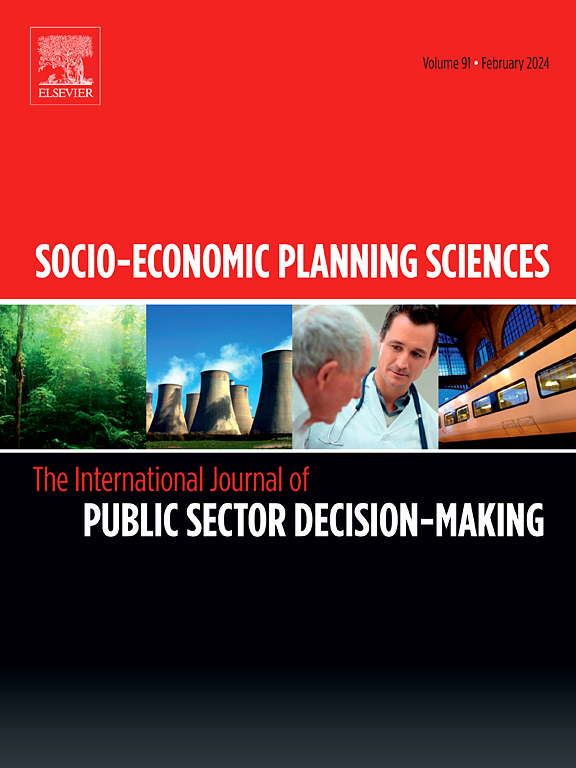Incentive contract in relief supply chains: The case of multiplayer competition and cooperation
IF 5.4
2区 经济学
Q1 ECONOMICS
引用次数: 0
Abstract
Cooperations between relief organisations and private-sector enterprises are common and crucial in responding to disasters, and incentive strategies may help encourage the enterprises to provide faster delivery of relief supplies to mitigate more human suffering. However, there have been few studies of relief organisations incentivizing logistics enterprises to improve delivery times, especially with the consideration of competition and cooperation among multiple enterprises. In this paper, we propose three incentive contracts between a relief organisation and multiple logistics enterprises by answering two research questions: (1) Will suitable delivery time incentive strategies benefit both the relief organisation and the logistics enterprises? and (2) Can the relief organisation benefit more from encouraging competition among logistics enterprises? Hence, we consider and compare four different situations (no incentives, common incentives, incentives with competition, incentives with competition and cooperation) between the relief organisation and the logistics enterprises using Stackelberg game. We conduct a case study in China to show the feasibility and appropriateness of our contracts. The result shows that the proposed incentive contract can benefit relief organisation and all logistics enterprises. The relief organisation can benefit more from encouraging competition among the logistics enterprises, but the enterprises can easily avoid the loss through cooperation.
救济供应链中的激励契约:多人竞争与合作的案例
救灾组织和私营企业之间的合作在救灾中是普遍和至关重要的,激励战略可能有助于鼓励企业更快地运送救灾物资,以减轻更多的人类痛苦。然而,关于救济组织激励物流企业改善配送时间的研究很少,特别是考虑到多企业之间的竞争与合作。本文通过回答两个研究问题,提出了救济组织与多家物流企业之间的三种激励契约:(1)合适的配送时间激励策略是否对救济组织和物流企业都有利?(2)鼓励物流企业之间的竞争是否会使救济组织受益更多?因此,我们利用Stackelberg博弈对救济组织与物流企业之间的四种不同情况(无激励、共同激励、有竞争激励、有竞争与合作激励)进行了考虑和比较。我们在中国进行了一个案例研究,以证明我们的合同的可行性和适当性。结果表明,所提出的激励契约对救济组织和所有物流企业都是有利的。鼓励物流企业之间的竞争可以使救援组织获得更多的利益,但企业之间通过合作可以很容易地避免损失。
本文章由计算机程序翻译,如有差异,请以英文原文为准。
求助全文
约1分钟内获得全文
求助全文
来源期刊

Socio-economic Planning Sciences
OPERATIONS RESEARCH & MANAGEMENT SCIENCE-
CiteScore
9.40
自引率
13.10%
发文量
294
审稿时长
58 days
期刊介绍:
Studies directed toward the more effective utilization of existing resources, e.g. mathematical programming models of health care delivery systems with relevance to more effective program design; systems analysis of fire outbreaks and its relevance to the location of fire stations; statistical analysis of the efficiency of a developing country economy or industry.
Studies relating to the interaction of various segments of society and technology, e.g. the effects of government health policies on the utilization and design of hospital facilities; the relationship between housing density and the demands on public transportation or other service facilities: patterns and implications of urban development and air or water pollution.
Studies devoted to the anticipations of and response to future needs for social, health and other human services, e.g. the relationship between industrial growth and the development of educational resources in affected areas; investigation of future demands for material and child health resources in a developing country; design of effective recycling in an urban setting.
 求助内容:
求助内容: 应助结果提醒方式:
应助结果提醒方式:


